Hip Pain Treatment
Hip Pain Therapy Treatment Near You
Experienced Hip Pain Treatment in Allen Tx.
Hip pain is a major problem among individuals today, especially elderly citizens. Several disorders may result in hip pain, including hip dysplasia, Femoroacetabular Impingement (FAI), labral tears, fractures, joint damage, or osteoarthritis.
Our board-certified medical experts evaluate and treat hip pain in patients of all ages. We help you overcome the pain and restore your body function by providing personalized care.

What are the Symptoms of Hip Pain?
The symptoms of hip pain depend upon its source, and the most common ones are discussed below.
- Dull ache on the hips.
- A feeling of intense burning or throbbing in the hip area.
- A grinding sensation on the hips.
- Severe pain that makes you limp.
- One leg feels shorter than the other.
- Popping or cracking noise when you move your hip.
- Hip pain as soon as you start moving it.
What Are the Conditions That Cause Hip Pain?
Hip pain or disorders can affect the quality of life and limit your mobility. The disorders range from intermittent and continuous to mild and severe ones.
Here is a list of conditions that cause hip pain in individuals.
- Arthritis of the hip
- Abductor muscle tear
- Avascular Necrosis (AVN)
- Acetabular dysplasia
- Cartilage injury
- Bursitis
- Degenerative joint disease
- Hip dysplasia
- Labral tear
- Femoroacetabular Impingement (FAI)
- Hip fracture
- Hip impingement
- Legg-Calve-Perthes disease
- Previous fractures that did not heal completely
- Malrotation
- Osteoarthritis of the hip
- Osteoporosis
- Osteonecrosis
- Snapping hip syndrome
- Tendinitis
- Slipped Capital Femoral Epiphysis (SCFE).
How To Diagnose Hip Pain?
Our medical team uses multiple techniques and technologies to diagnose hip pain and its underlying source. The process begins with a physical exam and a discussion of the symptoms and medical history. The doctor may also ask you to do a few exercises to demonstrate motion problems.
Hip pain diagnosis depends on a patient’s history and symptoms and includes the following.
- Arthrograms
- Arthroscopy
- Computed Tomography (CT)
- Gait analysis
- Nerve-root blocks
- Magnetic Resonance Imaging (MRI)
- 3D imaging
- X-rays
What Are the Treatment Options for Hip Pain?
Hip pain treatment depends on a patient’s condition, symptoms, and recovery goals. Medical experts often begin treatment with conservative therapies, such as physical medicine and rehabilitation. However, we may recommend surgery if the patient’s hip pain persists even after treatment.
We have a team of specialized orthopedic surgeons who perform multiple procedures to treat hip disorders in patients who do not respond well to conservative therapies.
The hip surgeries include traditionally open and minimally invasive procedures that include the following.
- Arthroplasty
- Arthroscopy
- Anterior total hip replacement
- Arthrodesis
- Cartilage transplant
- Bone grafting
- Core decompression
- Femoral Osteotomy (FO)
- Hip resurfacing
- Hip scope
- Hip reconstruction and replacement
- Injections
- Osteotomy
- Resection
- Revision joint surgery
- Periacetabular Osteotomy (PAO)
- Synovectomy
- Stem cells.
Our team of physicians, occupational and physical therapists, and nurses provide comprehensive care to patients after surgery to help them regain their quality of life.
Medical experts may also recommend procedures like partial or complete hip joint replacements to correct the underlying cause of the pain in a few patients.
Personalized Care for Hip Pain
Our team of medical experts works closely with every individual to determine the most effective treatment course depending on their medical history, diagnosis, and preferences. We ensure to provide top-quality treatment for hip pain and achieve the best outcome within a stipulated timeline.
You can consult with our skilled orthopedic surgeons for evidence-based procedures to treat hip pain if the conservative, non-surgical therapies fail to heal it completely.
Hip pain can be caused by a variety of conditions including arthritis (like osteoarthritis and rheumatoid arthritis), injuries (such as fractures and labral tears), bursitis, tendinitis, pinched nerves, and infections. Other potential causes include conditions like fibromyalgia and endometriosis (Buoy Health) (Verywell Health) (Mayo Clinic).
Hip pain can worsen at night due to the positioning of the body, decreased movement, and the lack of distraction from other daily activities. Certain conditions, like bursitis or arthritis, may cause pain that intensifies when lying on the affected side or due to the pressure on the hip joint during sleep (Buoy Health) (Verywell Health).
Treatments vary based on the underlying cause but can include rest, over-the-counter pain medications (like NSAIDs), ice or heat application, physical therapy, and sometimes steroid injections or surgery. For chronic or severe cases, physical therapy and possibly surgical interventions like hip replacements may be necessary (Buoy Health) (Verywell Health).
Home remedies for hip pain include resting the affected hip, using over-the-counter pain relievers, applying ice or heat, and performing gentle stretching exercises. Maintaining a healthy weight and using supportive footwear can also help reduce hip pain (Buoy Health) (Verywell Health).
You should seek medical attention if your hip pain is severe, sudden, or the result of an injury, if it’s accompanied by swelling, redness, or warmth, if you have a fever, or if it interferes significantly with your daily activities. Chronic or worsening pain should also be evaluated by a healthcare provider (Mayo Clinic) (Verywell Health).
Treatment options depend on the severity of the arthritis. In the early stages, the hip may be treated with non-steroidal anti-inflammatory medications, corticosteroid injections, and physical therapy. If these methods are not helpful and if the hip continues to deteriorate, injection of the hip joint with stem cell injections and/ or blockade of the sensory branches of the hip joint via thermal rhizotomy are among advanced treatment options offered at NorTex Spine & Joint Institute in order to avoid or delay surgery.

Treatment options depend on the severity of the arthritis. In the early stages, the hip may be treated with non-steroidal anti-inflammatory medications, corticosteroid injections, and physical therapy. If these methods are not helpful and if the hip continues to deteriorate, injection of the hip joint with stem cell injections and/ or blockade of the sensory branches of the hip joint via thermal rhizotomy are among advanced treatment options offered at NorTex Spine & Joint Institute in order to avoid or delay surgery. ...


